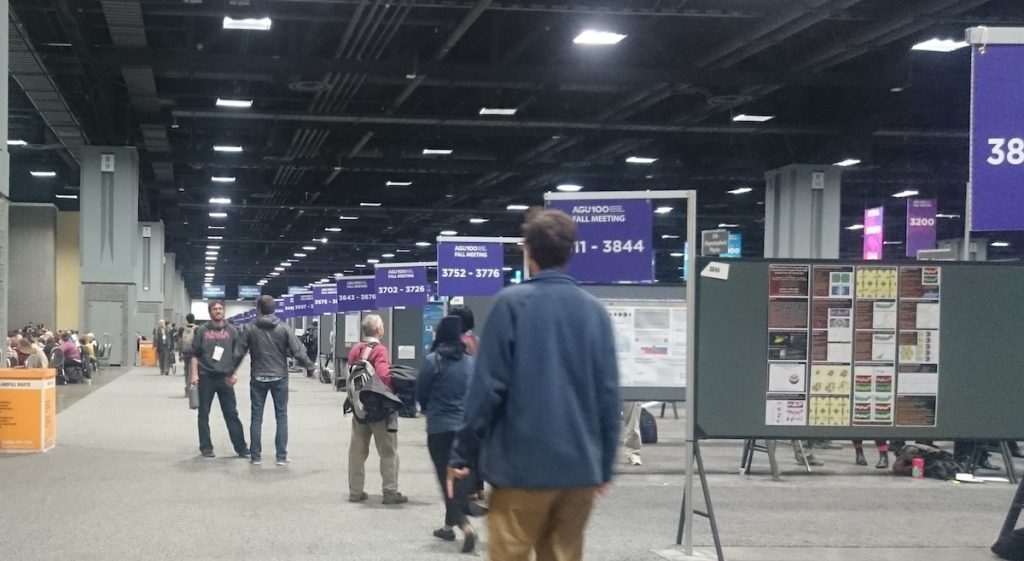by Pavan Harika Raavi
My research includes examining the influence of climate on tropical cyclone formation and its evolution from lower to upper troposphere using both observational and high-resolution climate model data. A recent theory of tropical cyclone formation, the “marsupial pouch theory”, explains that tropical cyclones form in relatively rare closed circulation regions called a “pouch” under certain favourable environmental conditions. This pouch also protects the initial vortex from external disrupting influences.
By examining the pregenesis environmental conditions under which these pouches develop into tropical storms can help use to improve our short-range forecast for tropical cyclone genesis.
I attended the AGU 2018 fall meeting at Washington DC, travelling 16,373 km from University of Melbourne, to present my research in this area. My oral presentation on “ The impact of large-scale climate on developing and non-developing tropical depressions” was in the Tropical cyclones observations, modelling and predictability session. Many researchers, scientists and students from across the world working in these areas attended the session.
Beyond the presentation, the most interesting part of the conference was getting to meet specific people through attending the outreach sessions – like morning breakfast with early career researchers – theme oriented meetings like ocean sciences meeting, and the atmospheric sciences meeting where you get to meet the well-known researchers and early career researchers from different fields.
Moreover, there are various career development sessions and student mentoring sessions where we can talk in student lounges to selected people in our research areas of choice for career advice. You can also see advertisements for career opportunities from various research organisations, companies and universities in the exhibition hall.
In addition to the science and career advice, there were a range of social events organised by the AGU committee, such as a night museum visit to learn the history of the place from different museums.

The poster sessions were extremely helpful, allowing me to interact with other researchers to learn more about specific topics. It even helped me to find a few statistical methods that can be applied in my research. During the poster session, I happened to meet a PhD student from Seoul National University working on a similar objective to me, except he is using model data and mine is based on observations (that was a relief).
My experience at AGU clearly showed me the benefits of attending international conferences to help me stay be updated in my research area and improve my specific research. In addition, the mentoring sessions provided me with an opportunity to meet and get career advice from a post doc from Princeton University and a professor from University of Hawaii. In total, it was a great experience to meet people from so many institutions and have important discussions with those working in similar areas.
